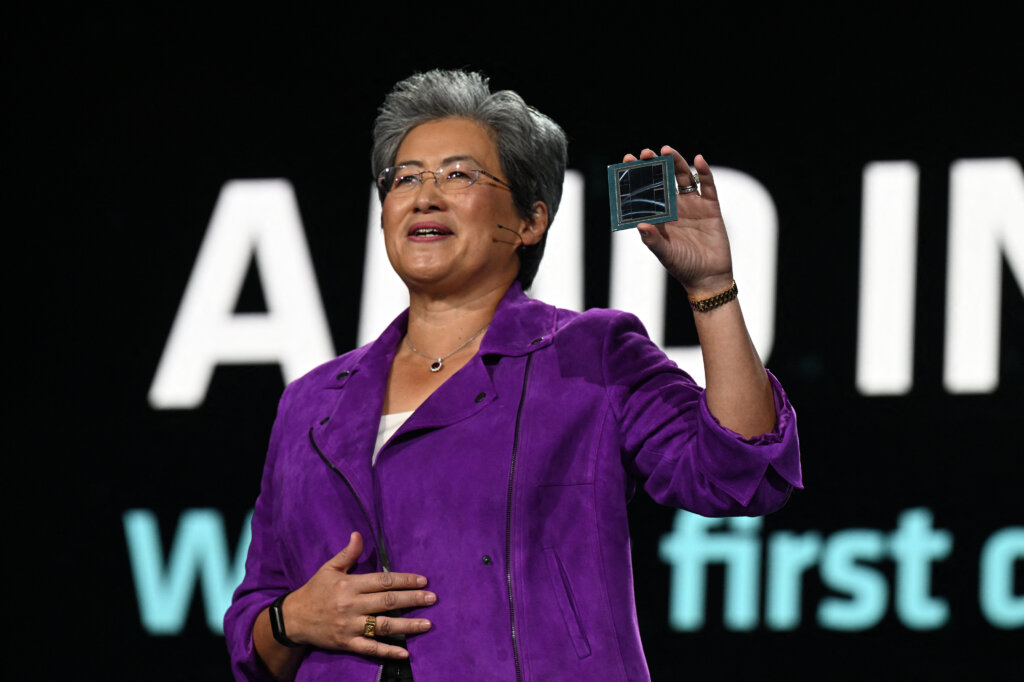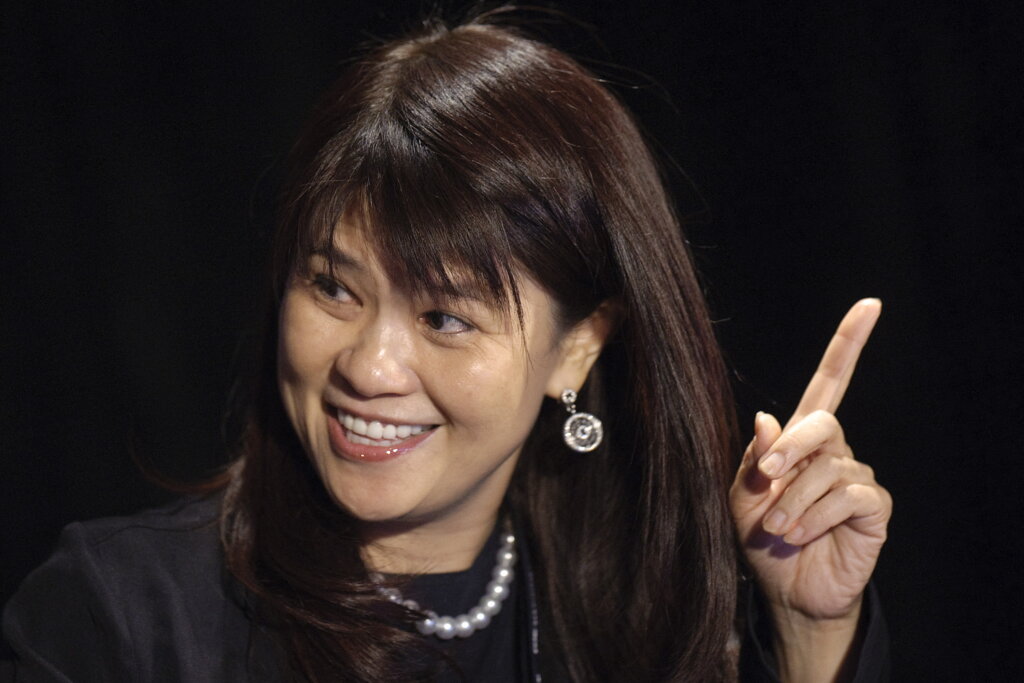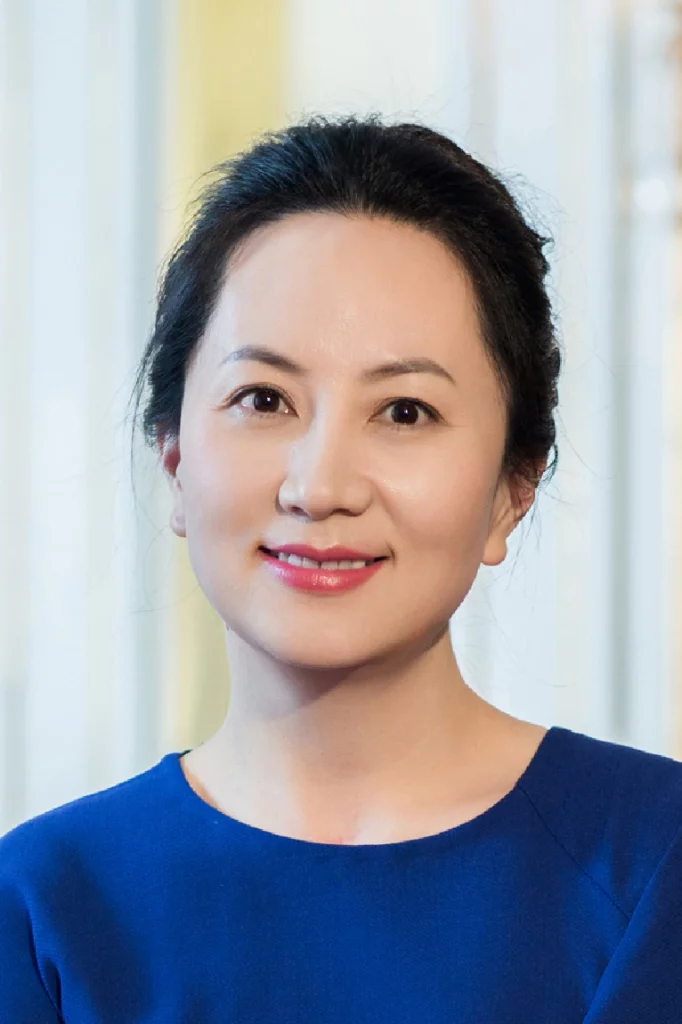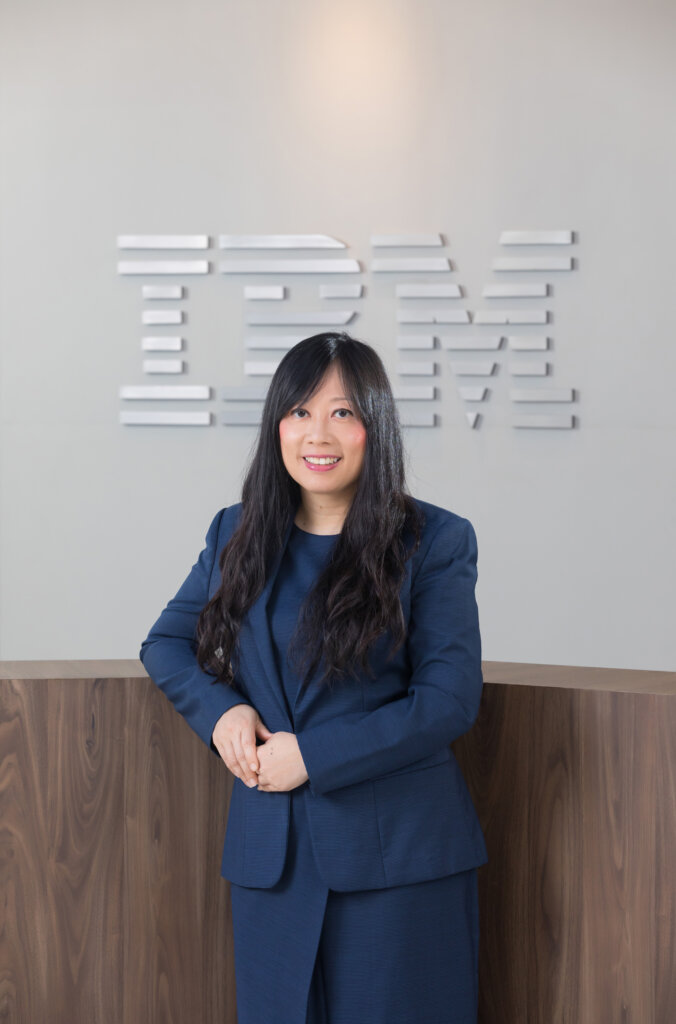
IWD 2023: Five most influential women in tech
- Tech Wire Asia has featured women who champion the advancement of transformative tech, from Google’s Sapna Chadha to AMD’s Lisa Su, Trend Micro’s Eva Chen, Huawei’s Meng Wanzhou, and IBM’s Catherine Lian.
- This year’s theme for International Women’s Day, as selected by the United Nations, is “DigitALL: Innovation and technology for gender equality.”
In December, UN Women, the United Nations entity for gender equality and women’s empowerment, announced that this year’s International Women’s Day (IWD) theme would be “DigitALL: Innovation and technology for gender equality“. The theme, focusing on women in tech and digital education, is calling on governments, activists, and the private sector alike to power on in their efforts to make the online world safer, more inclusive, and more equitable.
“From the earliest days of computing to the present age of virtual reality and artificial intelligence, women have made untold contributions to the digital world in which we increasingly live. Their accomplishments have been against all odds in a field that has historically neither welcomed nor appreciated them,” UN Women said in a blog post.
The elephant in the room is still the persistent gender gap in digital access that ultimately keeps women in tech from unlocking their full potential. “Their underrepresentation in STEM education and careers remains a major barrier to their participation in tech design and governance,” UN Women added.
Data from the 2022 UN Women’s Gender Snapshot indicated that “women’s exclusion from the digital world has shaved US$1 trillion from the gross domestic product of low- and middle-income countries in the last decade—a loss that will grow to US$1.5 trillion by 2025 without action.”
With time, women have risen in the tech industry—or at least its largest players—making slow but steady progress in shrinking its gender gap. In fact, according to Deloitte’s estimates, women’s share in the overall global tech workforce has increased by 6.9% from 2019 to 2022, while their share in technical roles has grown by 11.7%.
Notably, the fastest growth—an estimated gain of nearly 20%—has occurred in the proportion of women in leadership. Tech Wire Asia has gathered five women in leading tech roles.
Sapna Chadha, Google APAC’s VP of Southeast Asia and South Asia Frontier

Sapna Chadha
Vice President, Southeast Asia and South Asia Frontier, Google Asia Pacific
Google just announced that Sapna Chadha has been promoted to vice president of Southeast Asia and South Asia Frontier (Pakistan, Bangladesh, and Sri Lanka). Chadha was formerly vice president of marketing for Southeast Asia and India for Google, bringing with her over 25 years of global management, business, and marketing experience.
Chadha has been at Google since 2014, holding various leadership positions across regions, promoting the search engine behemoth’s mission of introducing the most helpful products and services for advertisers and users in the Asia Pacific region. Before Google, Sapna worked in consulting at Deloitte and held senior management roles.
Among those roles at American Express in the US and India, she led various functional areas spanning product development and management, digital marketing, and go-to-market strategy. Looking back, her professional journey has centered on the convergence of technology and business to drive positive change and deliver the benefit of inclusive innovation to more companies, people, and communities.
Sapna is also a founding member of Google APAC’s Diversity, Equity, and Inclusion Council, where she strongly advocates for promoting more excellent representation across the company. She has also pioneered several initiatives to ensure digital skills remain equitable and inclusive, especially for underrepresented groups in Asia.
Lisa Su, CEO of AMD

AMD Chair and CEO Lisa Su speaks at the AMD Keynote address, during the Consumer CES 2023 in Las Vegas, Nevada(Photo by Robyn BECK / AFP)
Historically, the technology sector has had difficulty including, accepting, and retaining women in the industry. After all, it is commonly known as the ‘boys club.’ The higher you look at a tech company’s organizational chart, the fewer women there are. Lisa Su, CEO of AMD, the multinational semiconductor company, is a rare exception.
Since Su became CEO in October 2014, AMD stock has soared more than 20-fold, reaching a market capitalization of more than US$132 billion. When Su took the helm of AMD in 2014, its stock had been approaching an all-time low. Su, who holds bachelor’s, master’s, and doctorate degrees in electrical engineering from the Massachusetts Institute of Technology (MIT), turned around AMD.
The company steadily moved to make chips for servers and data centers beyond its earlier focus on PCs and gaming. Its Zen architecture, launched in 2017, is now in its second generation and competes with market leader Intel. Fortunately, Intel’s challenges have cleared the runway for AMD to grab a larger market share in key areas.
Eva Chen, co-founder, and CEO of Trend Micro
Founded in 1988 by Eva Chen, her sister Jenny and brother-in-law Steve Chang, the Tokyo-headquartered company today is a cybersecurity juggernaut with revenues of US$1 billion and over 5,000 staff across 65 countries. Chen became the company’s CEO in 2004 and, ever since then, has been one of the most powerful women in the field of science and technology.

Trend Micro Chief Executive Officer Eva Chen (Photo by JIM WATSON / AFP)
Based on Trend Micro’s website, before becoming CEO, Eva served as executive vice president from 1988-1996, followed by CTO from 1996-2004. “Under her direction, Trend Micro has produced a chronology of industry firsts, from unique products to security management approaches. As a result of her innovative leadership, she was appointed CEO in late 2004,” the company stated.
Among her many accolades and accomplishments, one of the most prominent includes being named one of Forbes Asia’s 50 Power Businesswomen in 2013 and one of CRN’s Top 100 Executives in 2020.
Meng Wanzhou, rotating chairperson of Huawei Technologies
Despite being the face of a high-stakes trilateral dispute between China, Canada, and the US, Wanzhou has remained a strong force in both Huawei and the technology industry. After joining Huawei in 1993, Wanzhou has held positions including director of the international accounting department, CFO of Huawei Hong Kong, and president of the accounting management department.

Meng Wanzhou, Deputy Chairwoman of the board and rotating Chairwoman and CFO of Huawei. (Source: Huawei)
Under her leadership throughout all those years, she transformed Huawei into a digital and intelligent finance organization, laying a solid foundation for its operations and supporting its efforts to realize its strategies in the new era. Today, she serves as Deputy Chairwoman of the board and rotating Chairwoman and CFO of Huawei.
Wanzhou has always been among Huawei’s most high-profile executives, crisscrossing the world to speak at conferences, meet heads of state, and pitch the company’s technology to customers. She was also widely seen as a potential heir to her father, who remains Huawei’s chief executive almost 35 years after founding the firm.
Catherine Lian, managing director of IBM Malaysia
Lian, a veteran in the IT industry with over two decades of experience, was appointed as IBM Malaysia’s managing director in April 2019. At that time, Lian was one of the few women in executive positions in Malaysia, let alone the industry. However, with her new role, she continued to advocate for more diversity and representation in Malaysia’s tech industry, particularly from top-down.

Catherine Lian, Managing Director and Technology Leader, IBM Malaysia
According to her interview with Tatler Asia, she strongly supported numerous initiatives launched by IBM, including STEM for Girls and Tech Re-Entry. Prior to IBM, Lian worked at Dell Technologies since 1998 and began her career as an account manager at Dell Penang. She held various management positions across ASEAN and South Asian markets, such as Malaysia, Korea, Pakistan, Sri Lanka, China, Bangladesh, Indochina, and Cambodia.
Lian was even able to increase market share in developing markets by 40% year-over-year, according to Data Storage Asean. At Dell, she was also an active advocate for women in leadership and was part of the Dell Women’s Entrepreneur Network, which supported women business owners by providing access to technology, capital, resources, and networking.
Today, her role at IBM requires her to lead the growth and management of IBM Malaysia’s operations while guiding the Malaysian team to assist clients, partners, and critical stakeholders in using IBM’s leading AI/cognitive solutions, cloud platform, and industry capabilities to advance digital transformation.
READ MORE
- Data Strategies That Dictate Legacy Overhaul Methods for Established Banks
- Securing Data: A Guide to Navigating Australian Privacy Regulations
- Ethical Threads: Transforming Fashion with Trust and Transparency
- Top 5 Drivers Shaping IT Budgets This Financial Year
- Beyond Connectivity: How Wireless Site Surveys Enhance Tomorrow’s Business Network


